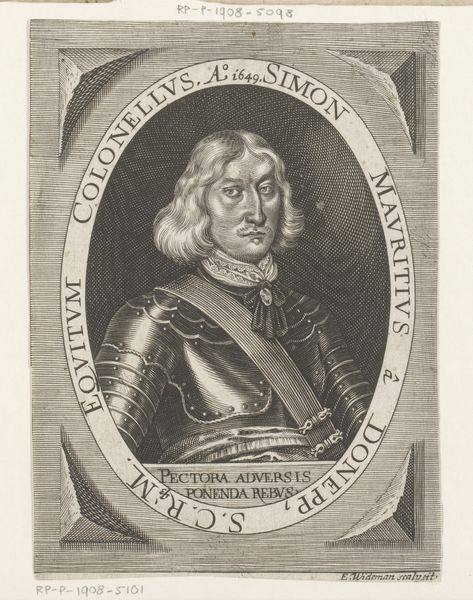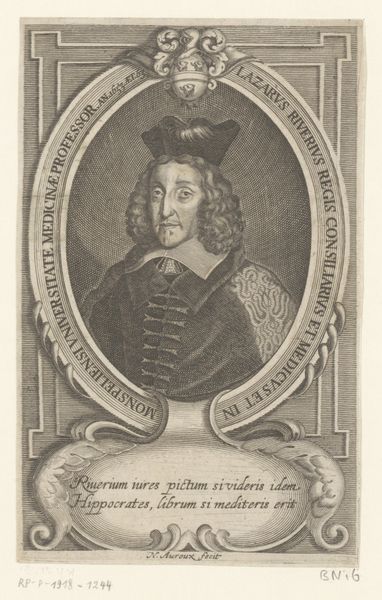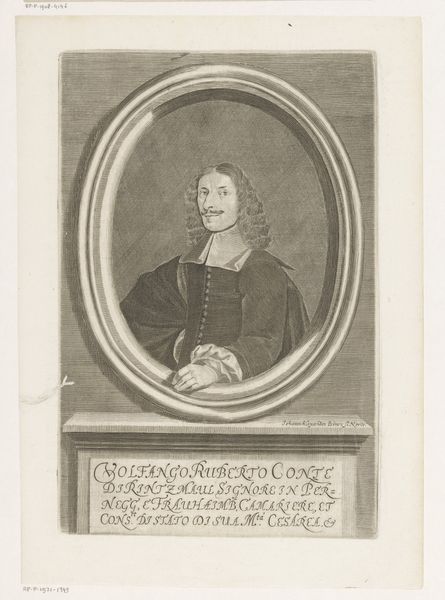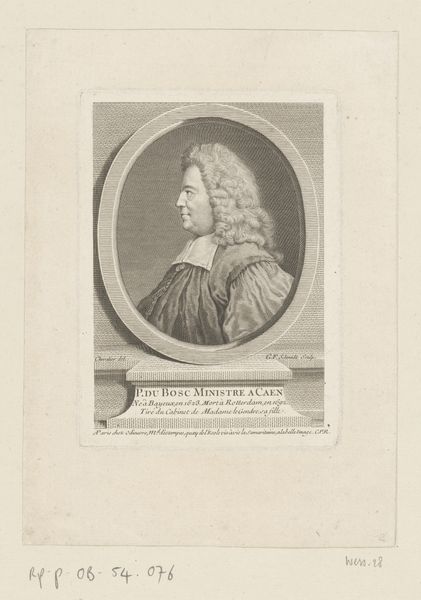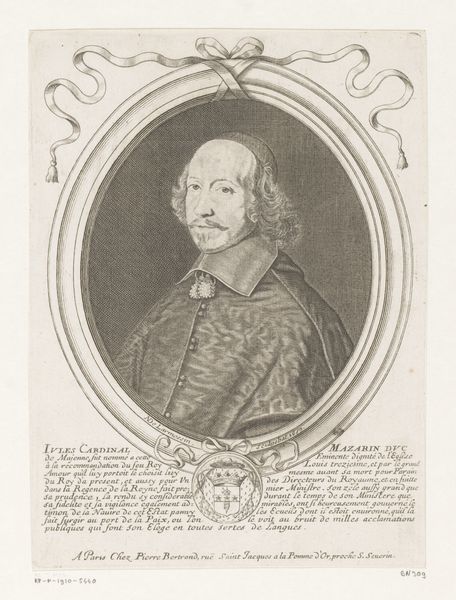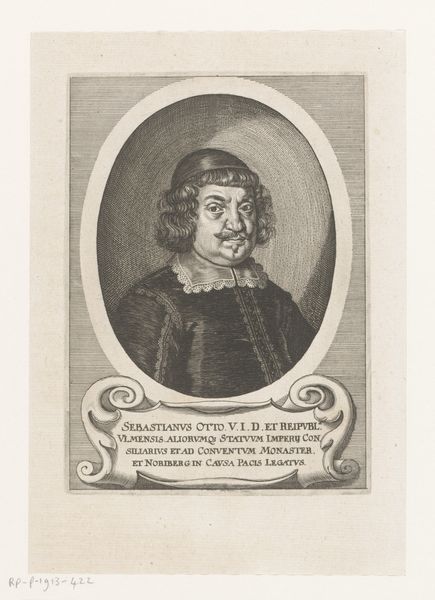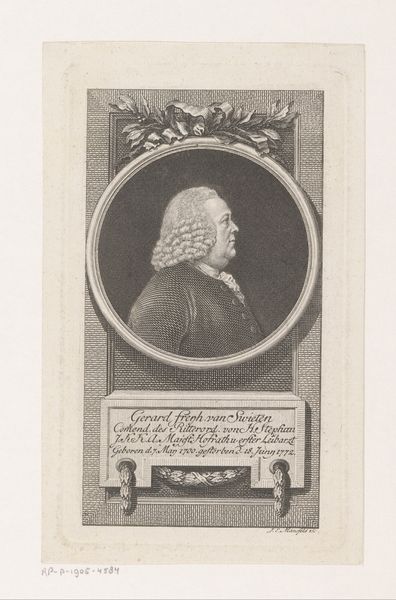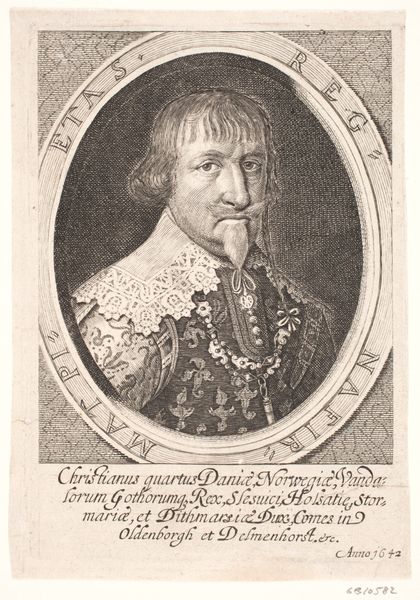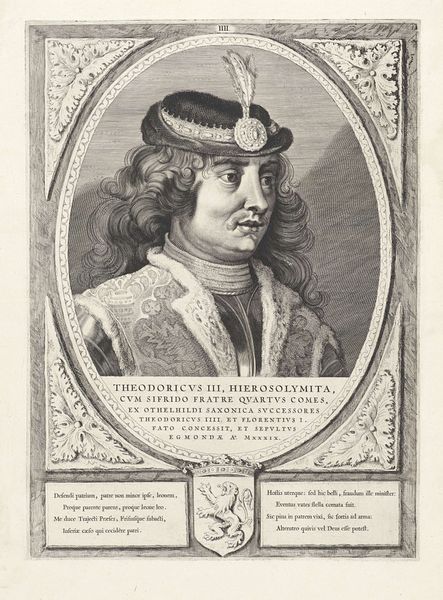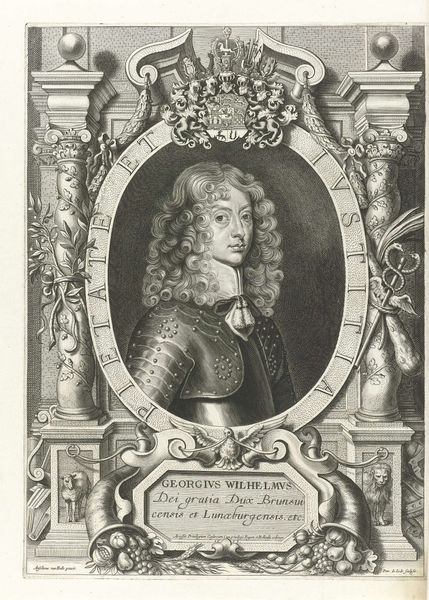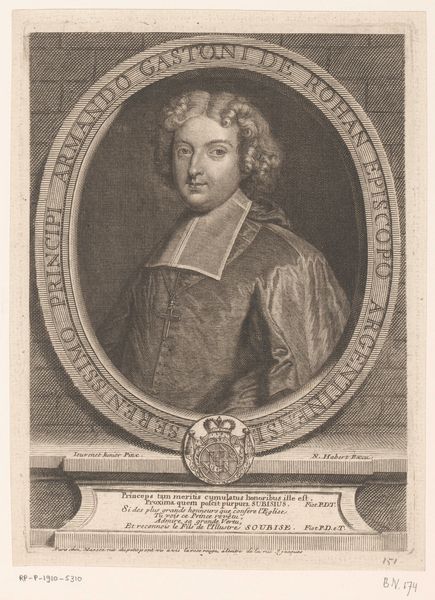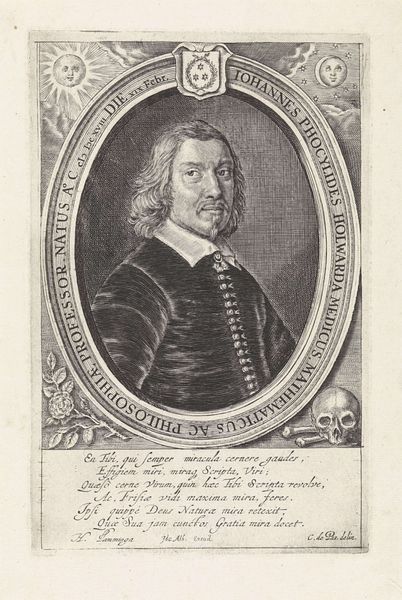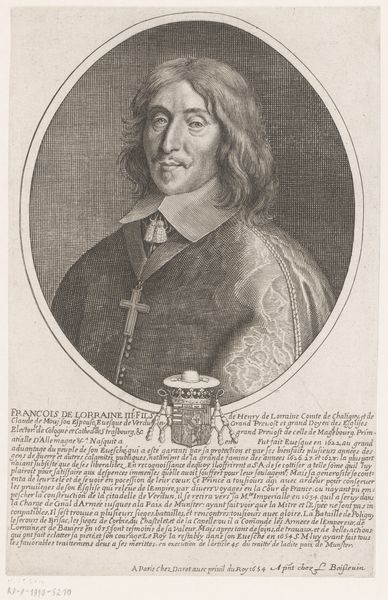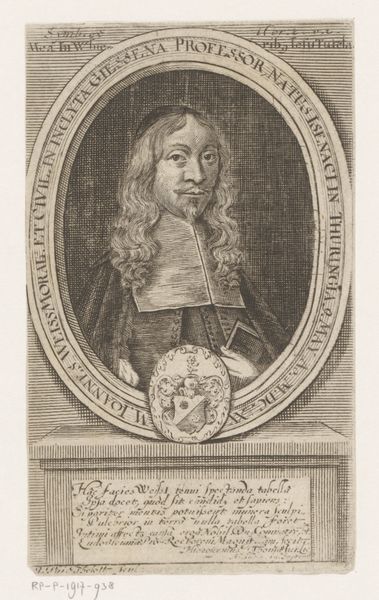
print, engraving
#
portrait
#
baroque
# print
#
old engraving style
#
engraving
Dimensions: height 143 mm, width 95 mm
Copyright: Rijks Museum: Open Domain
Editor: This is a portrait of Caspar Nützel, made in 1669 by Johann Friedrich Leonard. It looks like an engraving, a print of some kind. The incredible detail achieved just with lines is fascinating. What’s your take on this work? Curator: Well, let’s think about the act of engraving in 17th-century Europe. It's not just about making art, it’s about production, distribution. This image served a very practical purpose. What do you imagine that purpose was? Editor: I suppose it made the likeness of Caspar Nützel widely available? Curator: Exactly! Before photography, engraved portraits were vital for disseminating images of important figures, consolidating social power and influencing public perception. It served a consumerist purpose, to create demand and commodification. Think about the labor involved – the skilled engraver meticulously carving the image into a metal plate, producing copies. Editor: So the very act of creating multiples, which might seem almost mechanical, also served a social function? Curator: Precisely. The artist wasn’t necessarily trying to be ‘creative’ in the modern sense. The process of printmaking – its accessibility and dissemination – speaks volumes about how knowledge and power circulated in this period. Did Nützel have any say over this image? How did it portray his reputation? How readily could one obtain a copy, and what might they do with it? Editor: That shifts my view quite a bit. I was focused on the subject and artistic skill but understanding its material existence provides even greater understanding of that time period. Curator: Absolutely, thinking about the material production and dissemination allows us to appreciate art not as an isolated object, but a vital participant within a broader network of economic, social, and cultural exchange.
Comments
No comments
Be the first to comment and join the conversation on the ultimate creative platform.
